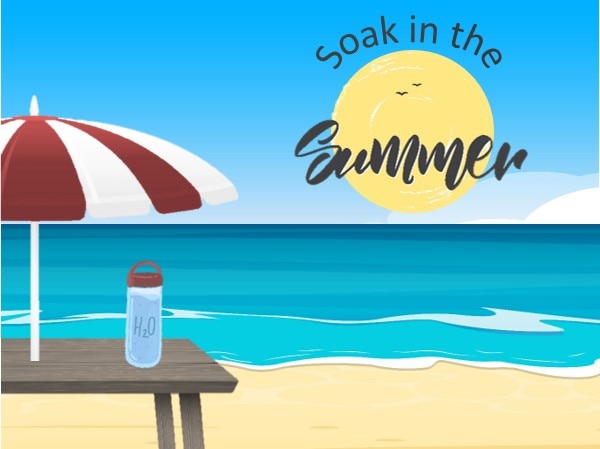
Keep the longer, warmer days of summer fun-filled and setback-free! Check out the tips below to enjoy your favorite seasonal activities and events while practicing precaution with the sun, heat, and bugs.
Heat and Sun Safety
A big part of staying safe in the heat and sun is being prepared. Have an idea of how long you will be out in the sun and the heat, and then plan accordingly. Here are some quick tips to remember:
- Limit your outdoor activity, especially midday when the sun is hottest
- Limit your outdoor activity, especially midday when the sun is hottest
- Pace your activity. Start activities slow and pick up the pace gradually
- Drink more water than usual and don’t wait until you’re thirsty to drink more
- Wear loose, lightweight, light-colored clothing that protects your skin
- Wear sunglasses and a hat
- If possible, take breaks from the heat and sun in a shady or air-conditioned location
Visit Keep Your Cool in Hot Weather! and Sun Safety to learn more.
Stay Hydrated
Dehydration is a safety concern, especially during the summer months. Be sure to drink enough liquids throughout the day, as bodies can lose a lot of water through perspiration when it gets hot out. Drinking plenty of water can be part of good nutrition, too. Snacking on water-rich foods like raw fruits and vegetables can also help keep you hydrated.
Without enough fluids, you may experience dehydration. Look for these signs:
- Extreme thirst
- Dry mouth
- Headache
- Muscle cramping
- Feeling lightheaded
- Foggy thinking
Watch Out for Others
Keep an eye out for those most vulnerable to the effects of extreme heat, sun, or dehydration—especially young children, older adults, and pets. And, never leave people or animals in a car on a hot day, even with the windows cracked. Visit Tips for Preventing Heat-Related Illness for more information.
Water Safety
Swimming is an enjoyable way to cool off and exercise, but it also takes extra precautions and vigilance. To lower the risk for water-related injuries or accidents:
- Always have adult supervision for children who are in or around water
- Do not swim alone, and swim near lifeguards whenever possible
- Learn to swim
- If you have difficulty swimming, wear a life jacket when participating in water-related activities
- Wear a life jacket when boating
- Know local weather conditions and forecasts before swimming or boating
Visit Water-Related Injuries to learn more.
Beware of Bugs
Spending time outdoors, and especially during warm weather, may put you in contact with disease-carrying insects. Be prepared and protect yourself with appropriate clothing, repellent, and other gear that can help you Avoid Bug Bites.
Soak in the Summer Toolkit


